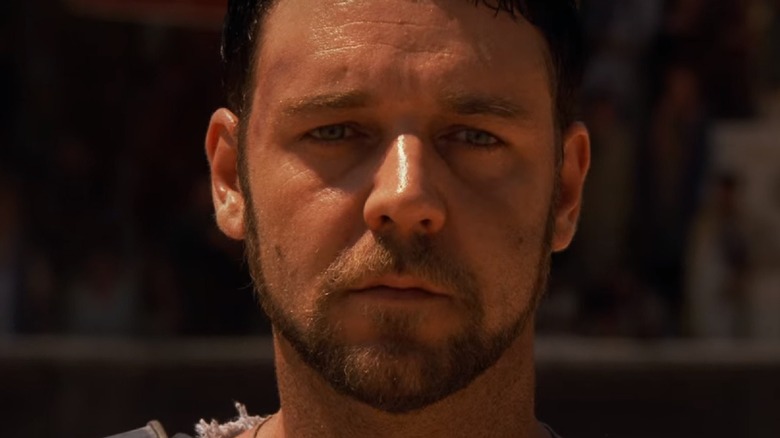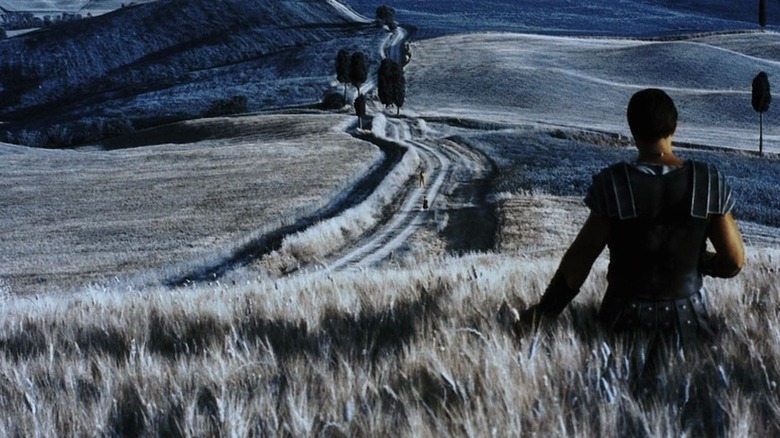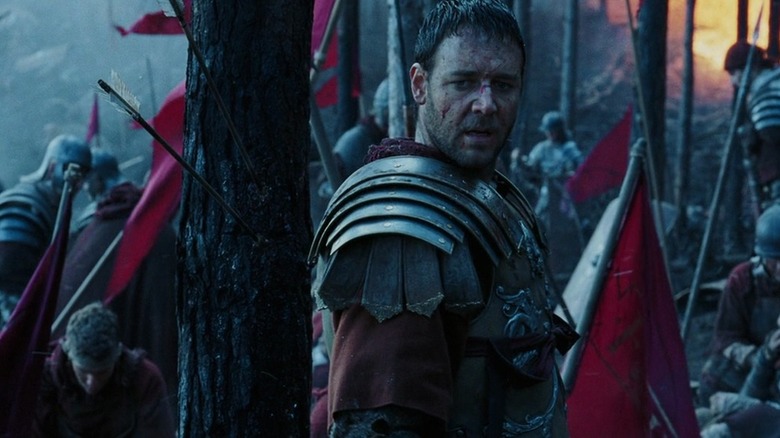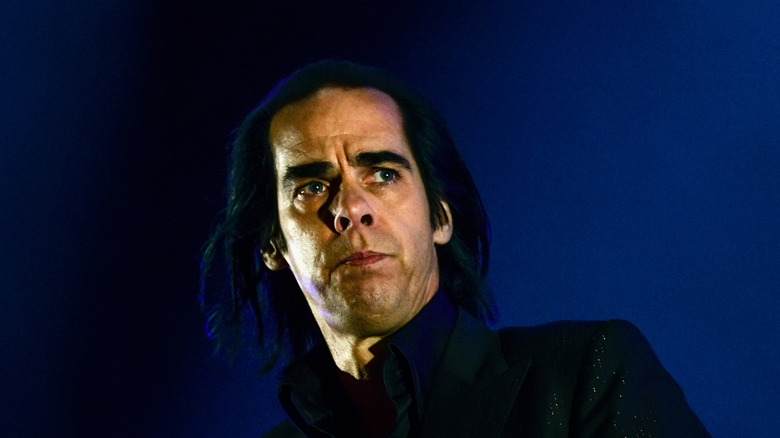Nick Cave's Gladiator 2: Christ Killer Is The Sequel We Still Want To See
Ridley Scott's "Gladiator" made an impact when it was released in 2000. The historical epic won multiple Academy Awards (including Best Picture) and grossed over $460 million at the international box office, which is an impressive feat for any movie, let alone an R-rated 155-minute drama about persecution and death. After years of waiting, a sequel is finally happening with Scott in the director's chair once again. However, "Gladiator 2" isn't going to be as bold and dangerous as it could have been.
Little is known about "Gladiator 2" as of this writing, but the word in the colosseum is that it will revolve around Lucilla's (Connie Nielsen) son, Lucius. According to Deadline, "Normal People" star Paul Mescal will portray the character, and he's expected to gain some serious muscle for the part. While most of the details are being kept close to the vest, it's clear that the story isn't based on Nick Cave's "Gladiator 2: Christ Killer" idea, which would have seen Maximus return from the dead and embark on a supernatural crusade.
With the sequel finally happening, now is the perfect time to revisit Cave's bold idea for "Gladiator 2" and mourn as we wonder what could have been. In a world where unnecessary sequels are a dime a dozen, "Gladiator 2: Christ Killer" would have proven that some needless follow-ups are original and brilliant in their own right.
The story behind Gladiator 2: Christ Killer
"Gladiator 2" began gestating in 2002. John Logan, who co-wrote the first film, penned a script that took place 15 years later and followed Lucius as a grown-up. However, when Russell Crowe decided that he wanted to reprise the role of Maximus in the sequel, Nick Cave was hired to come up with a brand-new story that brought Maximus back from the dead. Things got weird after that.
In Cave's story, Maximus is resurrected by the gods so that he can kill a Christ-like figure named Hephaestos. It turns out that Hephaestos is starting to build quite the following on Earth, and that poses a threat to Jupiter, Mars, and the other Roman deities. Maximus accepts the assassination mission after the gods promise to reunite him with his deceased wife and son. That said, it turns out that Maximus' son is alive and well, and the former Roman general gets tricked into killing him.
Afterward, the resurrected Maximus joins an army of Christian crusaders — who are sick of being fed to crocodiles — as they wage war against the Roman Empire. This act of betrayal causes Maximus to be cursed with immortality and forced to live through humanity's perpetual cycle of bloodshed. The script's closing scenes are a montage of Maximus fighting in history's most famous conflicts, from the Crusades to the Vietnam War, before he lands a job at the Pentagon. Who doesn't want to see this movie?
Gladiator 2: Christ Killer complements the first movie
While Nick Cave's sequel idea seems nuttier than a squirrel's lunch on paper, the script is more grounded than you think. The supernatural and fantastical elements are kept to a minimum, but it's not like these ideas were ever alien to the "Gladiator" mythos. After all, the closing moments of the first film see Maximus strolling through Elysium's wheat fields, ultimately acknowledging the existence of an afterlife.
Still, Cave's sequel still boasts enough epic battles, amphitheater atrocities, and colosseum carnage to work as a traditional "Gladiator" movie. During his travels, Maximus bumps into old friends such as Juba (originally portrayed by Djimon Hounsou), and the villain of the piece is none other than Lucius, who grew up to be more corrupt than Uncle Commodus. "Gladiator 2: Christ Killer" brings some bold new ideas to the table, but it doesn't rip up the rulebook either. The essential elements of a "Gladiator" movie are all present and accounted for.
Furthermore, "Gladiator 2: Christ Killer" explores themes that were established in the first movie, especially regarding Maximus. His ultimate rebellion against the Roman Empire — and, by default, the gods it worships — is akin to him refusing Commodus' vicious authoritarianism in the first movie. As for new concepts, the story chronicles the persecution of Christians in the Roman Empire, which is a bloody chapter of Roman history that lends itself to violent and dramatic storytelling.
Nick Cave is the real deal
Nick Cave was primarily known as a musician when he was hired to write "Gladiator 2: Christ Killer." His only other scriptwriting credit at the time was "Ghosts... of the Civil Dead," a suspense-drama about violence and oppression in a high-security prison. Despite being relatively obscure, the film has received some notable plaudits throughout the years, with The Guardian describing it as a "sledgehammer to the senses" that provides a nuanced take on prison life. In fact, it's comparable to "Gladiator" in the sense that it's another story about oppression and persecution.
Since then, Cave has established himself as a very talented screenwriter, as evidenced by his scripts for "The Proposition" and "Lawless." Unsurprisingly, his treatment for the "Gladiator" sequel was also well-received, with Ridley Scott describing it as "a piece [that] works very well" (per The Quietus). Perhaps he was considered too unproven at the time, but Cave has proven himself to be a sophisticated and consistent storyteller since he was hired to write "Gladiator 2." Furthermore, he has a fascination with the more uncivilized elements of human nature, and his style lends itself to a "Gladiator" movie.
Ultimately, a "Gladiator" sequel that featured the death of a Christian deity and time travel was deemed too off-the-rails for studio bigwigs and producers to support. That's a shame. While the upcoming sequel will undoubtedly be good, especially with Ridley Scott back at the helm, it probably won't be as bold and thought-provoking as Cave's idea.



